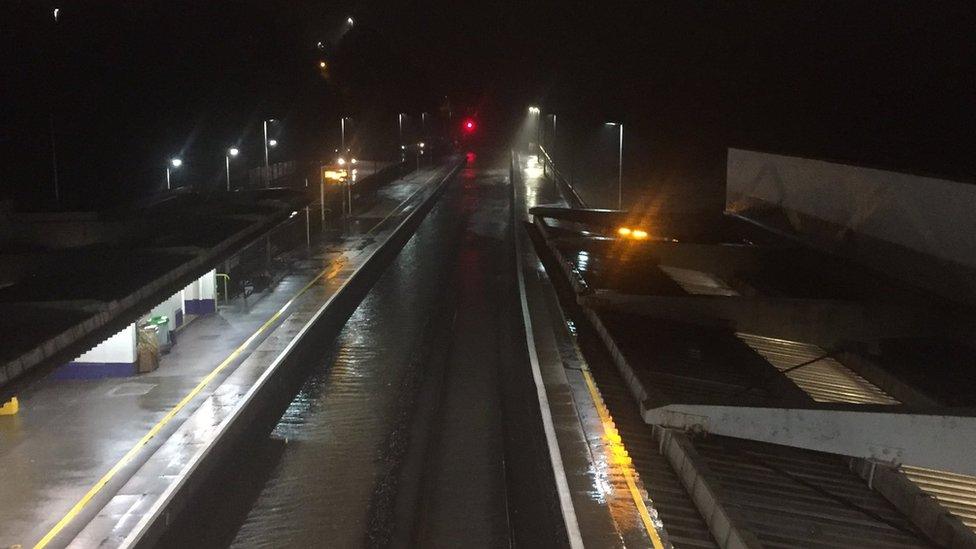Devon beach railway move plan angers residents
- Published
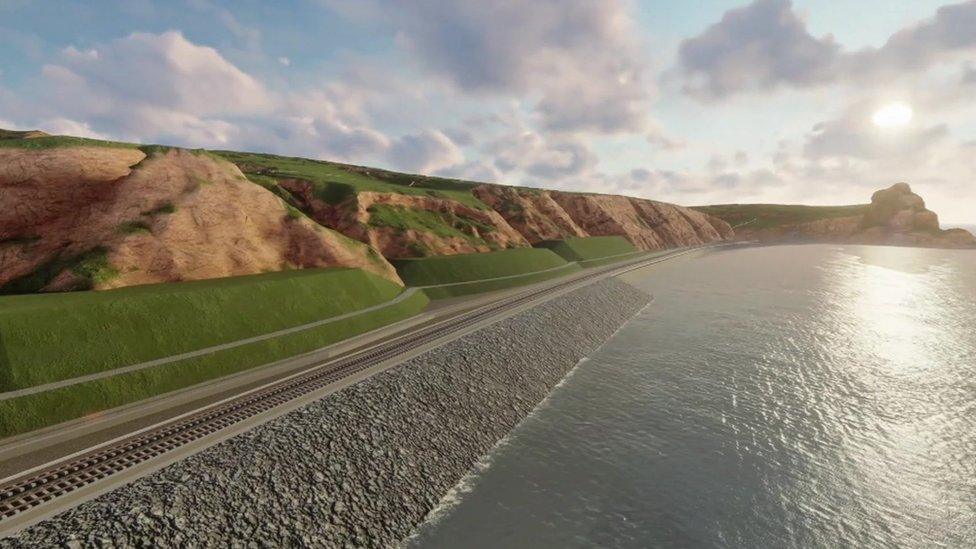
Campaigners against the proposals - as seen here in a digital illustration - said there must be alternatives
Plans to move a storm-hit coastal rail line on to a beach have been described as "horrifying" by residents.
Network Rail has announced plans to move a mile-long stretch of the main railway away from crumbling cliffs.
Campaigners claimed it would involve the destruction of more than half of Holcombe beach near Teignmouth, Devon.
Network Rail said the plans were the "best possible solution" to preserve the line that connected Devon and Cornwall to the rest of the country.
The proposals have been part of a broader series of plans by Network Rail to safeguard the line.
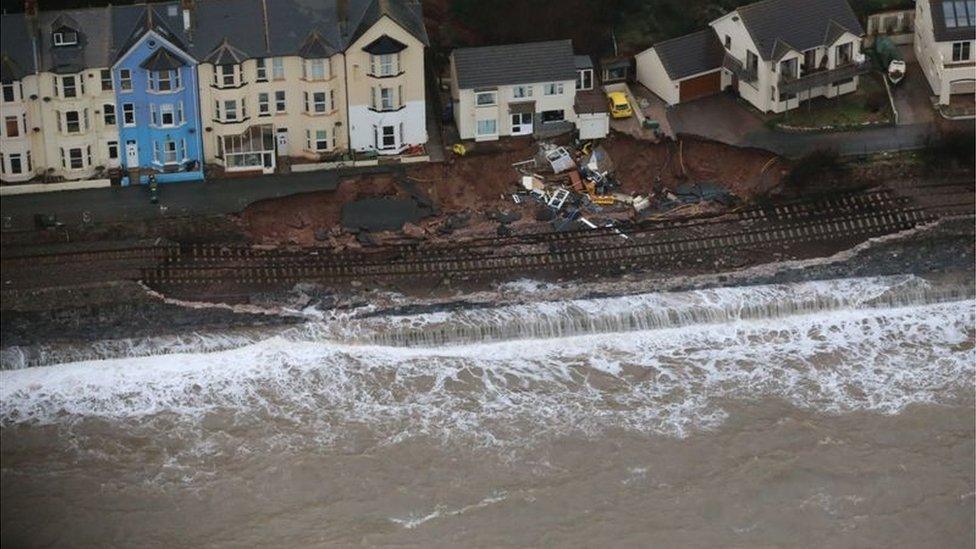
The sea defences at Dawlish were destroyed in 2014 and the line was closed for six weeks
These included the expansion of the sea wall, which began at Dawlish in June, following a major collapse and destruction of the rail line in February 2014.
That project was expected to be completed in January 2020 at a cost of £30m.
Ruth Ward from the Save Holcombe Beach campaign said there must be alternatives to destroying "such a beautiful beach".
"Surely in this day and age we know the sea is rising and moving it out to sea is going to make the problem from the sea worse," she added.
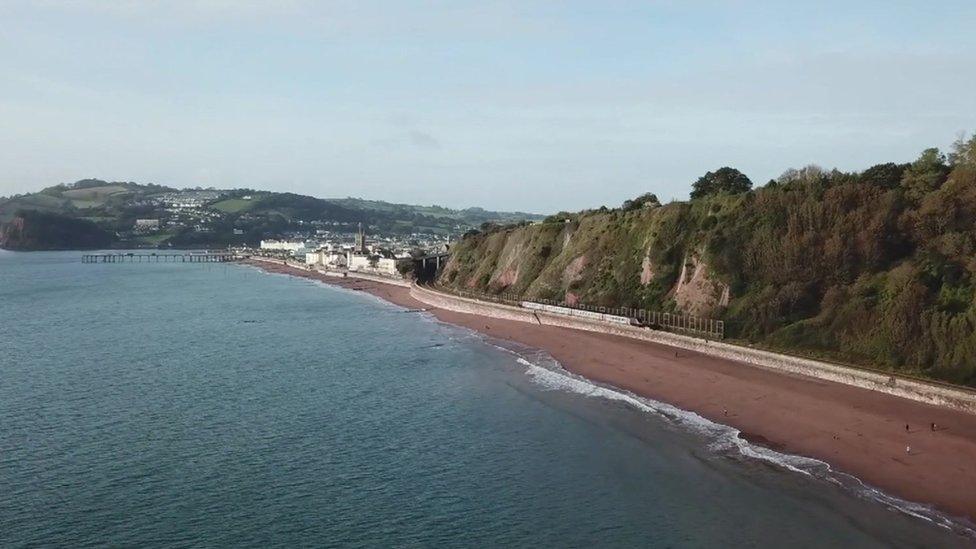
The rail line runs directly alongside the popular red sand beach
In 2014 the storm damage cost the local economy £1bn as a result of the six-week closure of the line, according to a spokesman for Network Rail.
"Leaving it is not an option. Changing our plans to potentially re-grade the cliff would mean we would have to close the railway line.
"It would have a massive impact on the peninsula, all the way down through Devon and into Cornwall," he added.
Network Rail said the plans were not final and further consultation would be held.
If the project went ahead the building work would begin in 2022 and take up to six years.
- Published1 June 2019
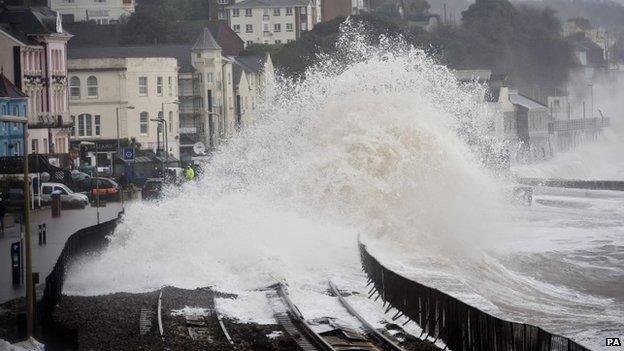
- Published4 February 2019
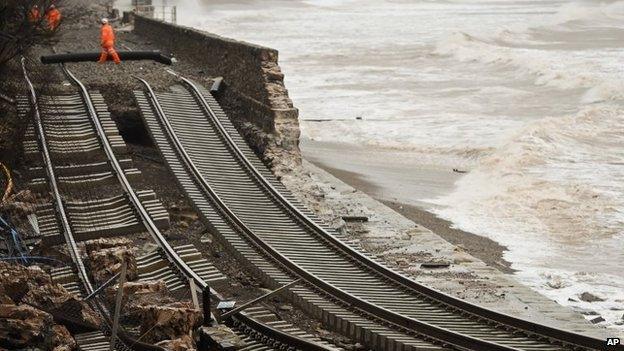
- Published9 November 2018
